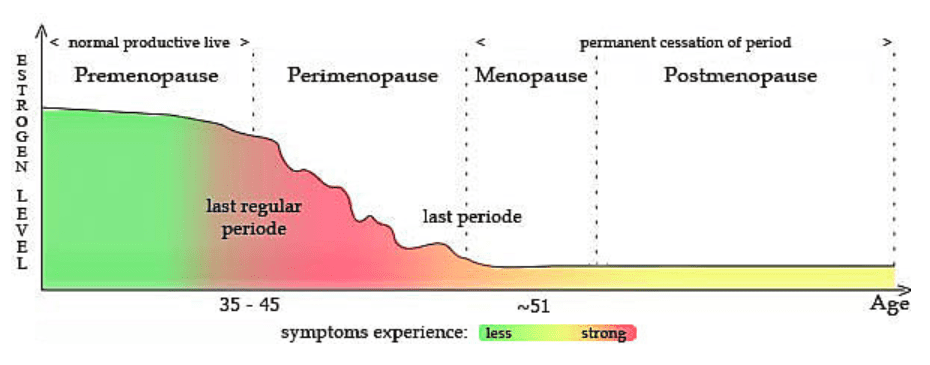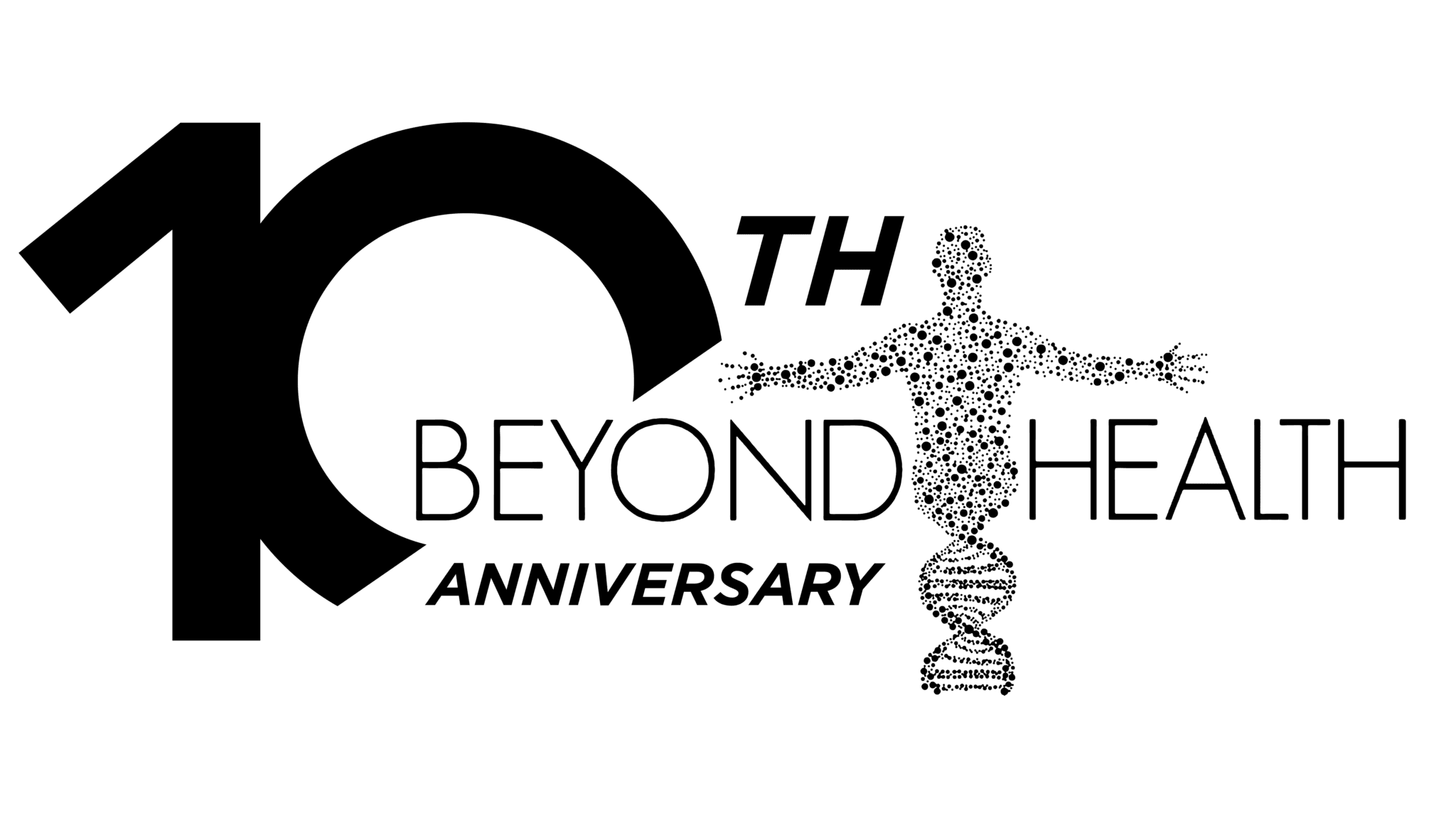Hormone imbalances often cause devastating physical, mental, and emotional symptoms in women who experience them. In 2020, you no longer have to accept hormonal deficiencies as a “normal” part of the aging process.
A woman can experience the often-devastating effects of a hormone imbalance at any time in her life, but she is especially likely to show signs of the condition during one of three stages of life – perimenopause (the 1-to-4 year time period leading up to menopause), menopause, or postmenopause (the period following menopause).

Source: Menopause FAQ
In this article, we will cover the causes and symptoms of hormone imbalance in women. Later on, we will discuss solutions — using the most advanced medical treatments — that correct the issue to restore a higher quality of life for the women who receive it.
Hormone replacement therapy, in many ways, represents the future of anti-aging medicine. Here is everything that you should know about hormone imbalances in women and how they can be effectively treated with the right clinical intervention.
What Is Hormone Imbalance in Women?
The human body has three sex hormones that play enormous roles in health. In men, the primary sex hormone is testosterone. In women, the two primary sex hormones are estrogen and progesterone – both of which are produced in the ovaries, the female sex organs.
Estrogen comes in three forms:
- Estrone (E1).
- Estradiol (E2).
- Estriol (E3).

Of the three human estrogens, estradiol (E2) is the most important and common form of estrogen throughout a woman’s lifetime. Hormone replacement therapy (HRT) utilizes E2 in its supplemental regimes (more on HRT with bioidentical hormones later).
Contrary to popular belief, estrogen is important for the proper function of nearly every major organ in the body across the lifespan. Maintaining optimal levels of estrogen in the blood, therefore, is critical for women’s overall health. In the body, estrogen performs the following functions:
- Controlling cholesterol levels.
- Maintaining bone density.
- Mood regulation.
- Sexual arousal (libido).
- Development of secondary sexual characteristics (breasts, pubic and underarm hair, etc.)
- Supporting healthy skin.
- Protecting heart health and cardiovascular function.
So, as you can see, the benefits of healthy estrogen levels extend well beyond the confines of the bedroom – indeed, your estrogen levels may directly impact both the quality and length of your life.
The next issue, then, becomes identifying the cause hormone imbalance in women.
What Causes Hormone Imbalance in Women?
As women enter midlife (40-50 years old), the dramatic effects of hormone imbalance normally begin to become evident (see next section for symptoms).
During this time period, known medically as menopause, a woman’s menstrual cycle stops and the supply of estrogen normally delivered into the blood declines. This condition, termed an estrogen deficiency, can have long-term consequences for women’s health.
In addition to age-related estrogen decline, the following factors can also negatively affect estrogen levels (even in younger, non-menopausal women):
- Turner syndrome.
- Chronic kidney disease.
- Dysfunctional pituitary gland (a region of the brain where human growth hormone is produced).
- Genetic conditions.
- Autoimmune disease.
- Eating disorders (anorexia, bulimia, etc.)
- Cigarette smoking.
In most cases, the cause of hormone imbalance is likely to be some combination of age and the above factors – generally speaking (but not always), the healthier a woman’s lifestyle, the less severe her symptoms will be.
What Are the Symptoms of Hormone Imbalance in Women?
The type and severity of hormone imbalance-related symptoms that women typically experience vary from mild to extreme – some women find them a minor nuisance while, for many, their symptoms significantly harm the ability to lead full, meaningful, productive lives.
The most common symptoms of hormone imbalance in women include:
- Cognitive changes.
- Hot flashes.
- Breast tenderness.
- Depression.
- Anxiety.
- Sleep disturbances (insomnia).
- New onset depression.
- Joint pain.
- Night sweats.
- Memory loss.
- Mood swings.
- Vaginal dryness.
- Loss of interest in sex.
This is just a sampling of the many symptoms that women with hormone imbalance experience – by no means is it exhaustive.
Over time, estrogen may lead to more serious, chronic, sometimes-fatal age-related conditions such as:
- Osteoporosis.
- Cancer.
- Heart disease.
- Diabetes and other metabolic disorders.
How Is Hormone Imbalance in Women Treated?
The good news for women battling hormone imbalance is that the condition is highly treatable – provided that you seek care from qualified, licensed medical professional with an expertise in hormonal medicine.
Bioidentical Hormone Replacement Therapy (BHRT) for Correcting Hormone Imbalance in Women
As we mentioned earlier, falling sex hormone levels in women (due to aging and other factors) result in the negative health impacts that women so often experience.
Turn-arounds in health for affected women, therefore, depend on replacing estrogen levels through supplementation with exogenous hormones (hormones sourced from outside the body). In clinical settings, this process is called hormone replacement therapy (HRT).
That’s where bioidentical hormones come in.
The emerging industry gold standard for correcting hormone imbalances is a proven therapeutic approach called bioidentical hormone replacement therapy (BHRT).
The hormones used in BHRT are sourced from plant estrogens called phytoestrogens. The natural structure of bioidentical estrogen stands in contrast to conventional hormones, which are synthesized in laboratories.
Bioidentical hormones are superior to lab-synthesized hormones used in other forms of hormone therapy because they perfectly match the molecular structure of women’s natural estrogen that is produced in the ovaries.
As a result, bioidentical hormones are well-tolerated and highly effective.
Women with estrogen deficiencies who receive bioidentical estrogen with BHRT report the following benefits:
- Increased energy levels.
- Improved mental outlook.
- Restored sex drive.
- Younger appearance.
- Improved cognitive function.
Take Charge of Your Hormone Health Today
If you have been affected by a hormone imbalance, you should be aware that recovering your good health and youthful vitality is possible – and likely to be more affordable than you thought.
Since its inception, BEYOND HEALTH has been a pioneer in New Mexico hormonal care, specializing in the exciting new practice of bioidentical hormone replacement therapy (BHRT).
BEYOND HEALTH has helped thousands of Albuquerque women correct the hormone imbalance that triggers the menopausal symptoms described earlier.
Get started today by contacting BEYOND HEALTH via our simple contact form. Alternately, our staff can also be reached by phone at (505) 899-4414 or by email at info@beyond-health.com. We prioritize making a prompt reply to your inquiries and requests.
This article has been reviewed and approved by our medical team.
*This website is for educational purposes only. It is not intended as a substitute for the diagnosis, treatment, and advice of a qualified licensed medical professional. This site offers people medical information and tells them their alternative medical options, but in no way should anyone consider that this site represents the practice of medicine. This site assumes no responsibility for how this material is used. Also note that this website frequently updates its contents, due to a variety of reasons, therefore, some information may be out of date. The statements regarding alternative treatments for cancer have not been evaluated by the Food and Drug Administration.

